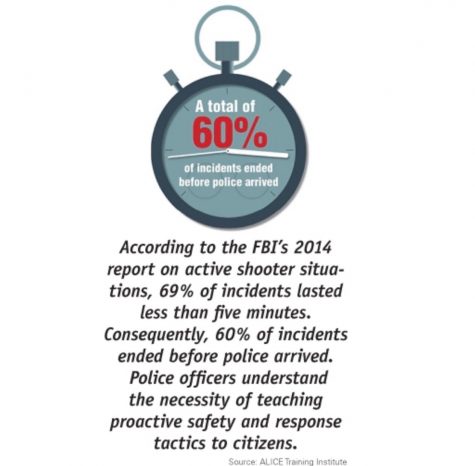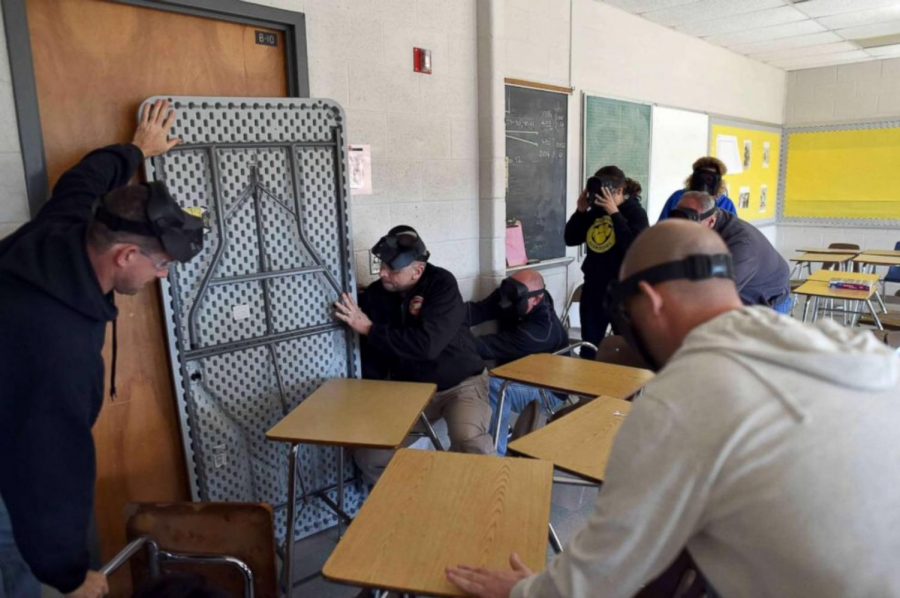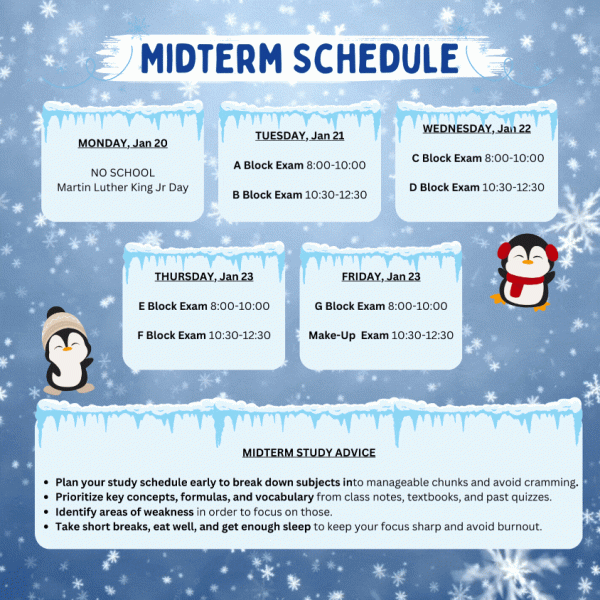A.L.I.C.E. Update
You might wonder what happens when the students aren’t allowed in the building after school on certain Wednesdays. After school the faculty from both the middle school and high school, along with administrators, staff members, and members of the Hamilton and Wenham fire and police departments, all come together in our high school. This is because they are training for a possible school emergency.
During the after school training sessions, teachers take the role of students, completely unaware of the situation that is going to unfold. The police and fire departments run through different emergency scenarios with the teachers, and they talk them through how to think and behave in those certain scenarios. They have to determine how to respond based on the training that they were given.
In order to be prepared for a school emergency, trainers divide teachers into different classrooms and see how they react as different scenarios unfold. For example, a police officer might act as an intruder and come in through a back door, and the teachers have to react. Do they barricade the door, or do they move to a new location? How do they react? Or, what is the right thing to do if students leave their classrooms and are on the way to their next class when someone with a weapon comes around the corner? It is a very scary reality we have to think about.
 Practicing for situations like this is vital because, like Mr. Hickey said, “In the actual situation it’s hard to react in the moment, so by practicing it in a real but controlled circumstance you start to think about, how safe is my room?” Teachers are able to experience high pressure situations, and they are able to make mistakes without any repercussions so if anything ever happens they are prepared and will know what to do.
Practicing for situations like this is vital because, like Mr. Hickey said, “In the actual situation it’s hard to react in the moment, so by practicing it in a real but controlled circumstance you start to think about, how safe is my room?” Teachers are able to experience high pressure situations, and they are able to make mistakes without any repercussions so if anything ever happens they are prepared and will know what to do.
The police and fire departments are there to act both as support and as trainers. Some of them are there because of their expertise with weapons and others are there because they are trained to be facilitators. Through this process staff members are trained to be able to determine what is the best course of action for both themselves and the students, locking down or trying to escape.
There is a group of teachers and administrators who have had extensive A.L.I.C.E. training and have gone on at least one all day training to learn about the new protocols. All the other teachers who did not do that have watched webinars and have both read and talked about the differences between A.L.I.C.E. and traditional lockdowns.
The 6-12 English department head, Mr. Hickey, recalled, “We used to just lock the door and sit and wait for more information no matter the situation.” A.L.I.C.E. is better than lockdowns because it gives you a lot more options. When a situation is constantly changing, like a school emergency would be, you have to be fluid with it and be able to change along with it. In years past they only had one option but now the teachers are able to “use their instincts and their best judgement to do what they think would result in best possible outcome for the students.”
A.L.I.C.E. adds more responsibility because teachers will have to make decisions in a circumstance that they don’t fully understand. When asked if the added responsibility adds stress for the teachers, Ms. Sprouse, a high school Spanish teacher, said, “Yes, but in a good way. I also feel empowered.”

Brigitte Worstell, a freshman at Hamilton-Wenham Regional High School, enjoys writing and is looking forward to developing new skills as a member of The...







